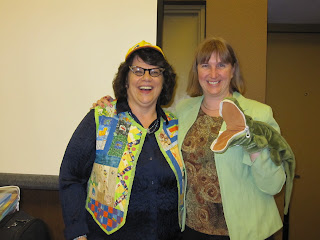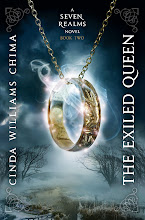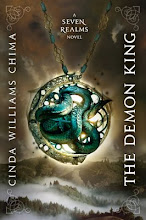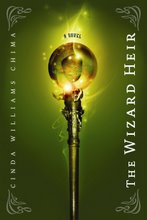Great—you’ve found a critique partner, or a group, or an ongoing workshop. Yes! You think. This is just what I need to reach the next level.
But there’s trouble from the start. Cassie submits a hundred pages every month, but does a perfunctory read of your 850-word picture book. Roy only shows up when he is on the schedule for critique. Roy’s erotica embarrasses Tom, who writes “clean teen” fiction.
Bitsy gets defensive whenever anyone makes a suggestion about her work, and it always turns into a big argument. She thinks the only person qualified to comment is Miranda, because she’s the only published author in the group. Bitsy is hoping Miranda will refer her to her agent. Of course, nobody ever has any suggestions about Miranda’s work, because it is just PERFECT.
Miranda quits after the first meeting. And within a month or two, everyone else does, too. What went wrong?
I’ve belonged to a number of critique groups over the years. Some lasted for years, others either imploded or were not a good fit for me.
I am currently active in three very different groups. One is online, the other two are in-person.
There are many different ways to structure a critique group, but making it effective and fair takes planning and effort on everyone’s part. It’s important to establish some rules and expectations from the start. You may need less structure than this, but here are some issues to consider up front.
Who will be in the group? Can anyone join or are there criteria as to genre, audience, or experience level? Is the group open to the public, e.g., new members can join at any time, or closed, to maintain continuity? Is there a limit as to size? How are new members admitted? Does the group have to agree or can any member invite someone? Do prospective members have to submit a writing sample?
Some groups include a mixture of new and established writers, which allows more experienced writers to mentor newbies. But there’s also the risk of losing pro-level writers who are not getting value back in the form of helpful critique. Long-lived groups depend on reciprocity—where all members have their needs met. I think it’s best to seek group members who exhibit the same level of focus and professionalism about the work.
It is not necessary for all members of a critique group to write in the same genre, but it is necessary for all members to take submissions seriously and offer useful critique, whether they write that genre or not. It is not helpful for another member to throw up his hands and say, “Well, I don’t feel qualified to read this because I just don’t get science fiction.” Good fiction, no matter the genre, has more commonalities than differences.
How will the work be submitted? Will it be distributed in hard copy to members for review at the next meeting? Emailed to members ahead of time? Read aloud at the critique meeting? There are pros and cons to each method. For instance, reading work at the meeting means there is little work to be done outside of the meeting, except for the writing. But it also means that time at the meeting will be taken up by reading. You may need to limit the number of works critiqued at a meeting, and the length of each work critiqued.
If submissions are read aloud, a good or bad reader can affect how the work is perceived. And “hearing” a work is different from reading it.
What will the process be? Will you meet in person or submit critiques online at your convenience? If in person, will critiques be written? Verbal? Both? Do members want line edits or global feedback only? Can a member submit every month or is there a schedule? Are all group members expected to critique every submission? At the meeting, will you go around the circle, making sure everyone is heard from, or will it be a matter of who speaks up? Is the author expected to remain silent during the critique or not? You may think, why shouldn’t the author be allowed to speak? But it can shut down feedback (not to mention take up a lot of time) if the author argues and defends and explains every point. Will there be a discussion leader at the meetings? That can help keep the meeting on track, on time, and discourage off-topic side conversations. Is it the same leader at every meeting, or does it rotate? Is social time planned into the meeting, or is it all business?
What are the expectations of group members? Will the group meet at the same time and day each month or will it vary depending on member schedules? Are all members expected to be at the meetings, except in unusual circumstances, or can they come and go, depending on their interest in the work at hand? If members don’t attend the meeting, are they still expected to forward critique to the submitters for that month? Are all members expected to submit, intermittently at least? (This may seem obvious, but I once belonged to a group that broke up because some members critiqued, but never submitted.) We learn both by giving critique and receiving it.
Finally, it may take several tries to find a group that is a good fit for you in terms of membership, process, genre, and work ethic. One group may be primarily a social group, another may be a nest of literary barracudas, a third may focus almost exclusively on a genre that you don’t write. If you write novels, a monthly critique meeting with a ten-page limit is not going to work well for you in terms of getting feedback on the entire work.
Be persistent. If you want critique, find a path that works for you, even if it means organizing a group yourself.
Critique Links
You will notice that a lot of these resources are related to science fiction and fantasy writing. That’s because SFF writers have a long history of workshop critiquing.
Longridge Writers Group
This site covers rules of critique as well as guidelines for managing critique group problems
http://www.longridgewritersgroup.com/rx/st01/starting_a_critique_group.shtml
Turkey City Lexicon
Site directed at science fiction and fantasy writers, but all writers will see themselves here (and have a good laugh too)
http://www.sfwa.org/writing/turkeycity.html
http://www.fictionfactor.com/articles/critiquing.html Tips for the actual process of critiquing
James Patrick Kelly’s article on Writing Workshops
http://www.sfwa.org/bulletin/articles/workshop.htm



























